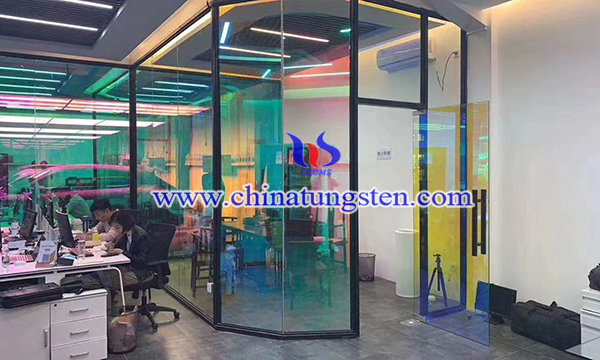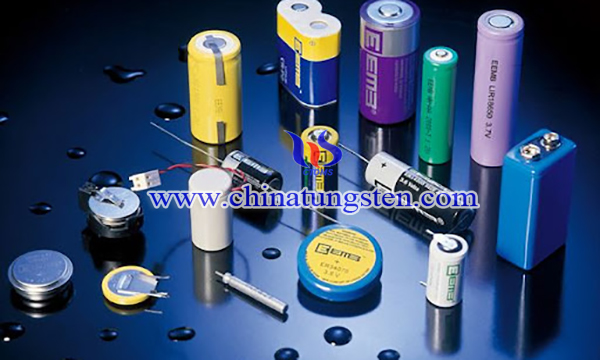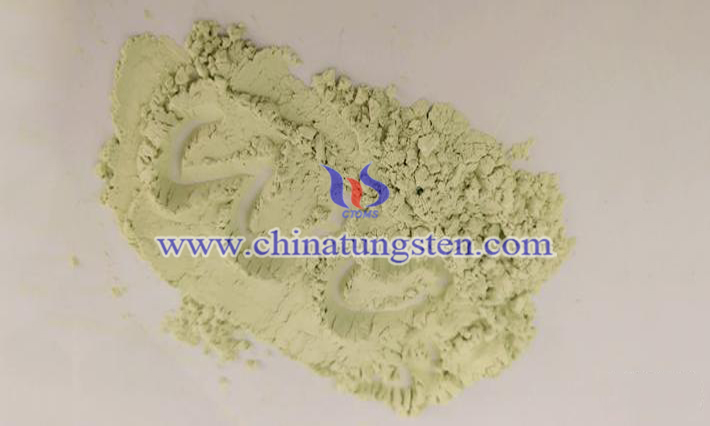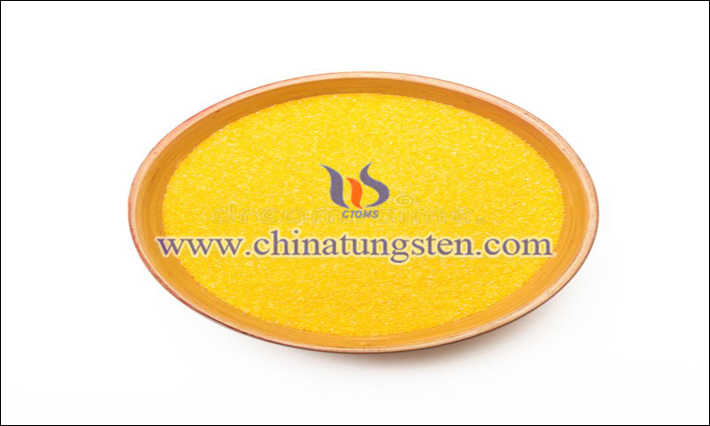Fabrication of Adhesive Electrochromic WO3 Thin Films
- Details
- Category: Tungsten Information
- Published on Monday, 18 October 2021 00:20

In the past few decades, electrochromic devices have received great attention from researchers in related fields in the materials industry. Tungsten trioxide (WO3) is one of the most common electrochromic films that, utilized as electrodes for smart window applications, aiming at reducing the energy consumption in buildings.
Printing of WO3/ITO Electrochromic Films
- Details
- Category: Tungsten Information
- Published on Sunday, 17 October 2021 23:49

Electrochromic smart devices with controllable optical properties are the most promising alternatives to traditional doors and windows. The existing technology preparation and commercialization of large-scale electrochromic films are mainly based on vapor deposition, but large-scale applications are limited by high prices (due to the complex preparation process).
WO3·2H2O/Bamboo Charcoal Hybrids as Enhanced Supercapacitors
- Details
- Category: Tungsten Information
- Published on Friday, 15 October 2021 22:58

Electrochemical supercapacitors have become prominent energy storage devices due to their excellent capacitance behavior, unparalleled power and energy density, and excellent cycle stability.Tungsten trioxide (WO3) has the advantages of various shapes, high theoretical specific capacitance, environmental friendliness, and low cost. It is a promising electrode material. However, its low conductivity (10-5-10-6 S cm-1) limits its wide application. Doping or dispersing WO3 with highly conductive carbon materials is a solution to overcome these shortcomings.
Tungsten Trioxide Gas Sensor
- Details
- Category: Tungsten Information
- Published on Thursday, 14 October 2021 17:04

Tungsten Trioxide (WO3), as a material with high gas sensitivity, high sensitivity and short response time, can be used as a gas sensor, and has been widely used in life and industry.
Tungsten Trioxide Gas Sensing Property
- Details
- Category: Tungsten Information
- Published on Thursday, 14 October 2021 16:15

In recent years, as a highly sensitive material, Tungsten Trioxide (WO3) has many advantages, such as short response and recovery time, appropriate response temperature, easy measurement and control, and low price. It can be used in the military and national defense fields, and has attracted people's concern.That's all thanks to its gas sensing property.
Tungsten Trioxide Thin Films Preparation :Electrodeposition Method
- Details
- Category: Tungsten Information
- Published on Thursday, 14 October 2021 16:08

Tungsten Trioxide (WO3) thin film is a kind of functional material with large transmittance change, good reversibility, low relative price, long life, non-toxicity and environmental protection, and it is the earliest and most widely used electrochromic material. The application of this electrochromic material is hidden in our daily life. For example, it can be made into smart windows, which can save energy, dim light, control heat load and other functions. Therefore, in order to study the properties of Tungsten Trioxide thin films, researchers have continuously improved their preparation methods, such as preparing WO3 thin films by electrodeposition, which has become a research hotspot in recent years. The following is a general procedure for preparing Tungsten Trioxide thin films by electrodeposition method.
Tungsten Trioxide Electrochromism
- Details
- Category: Tungsten Information
- Published on Thursday, 14 October 2021 16:01

Tungsten Trioxide(WO3)is an electrochromic semiconductor material with early discovery, deep study and wide application. It has good chemical stability, no toxicity, great difference in optical properties between coloring and fading, and long cycle life, so it has been widely used in the field of energy conservation.
Tungsten Trioxide Photocatalytic Property
- Details
- Category: Tungsten Information
- Published on Thursday, 14 October 2021 15:52

In recent years, Tungsten Trioxide (WO3) has been favored by researchers for its many special properties. For example, when WO3 is used as a photocatalyst, it can be used for air purification, self-cleaning, inorganic and organic synthesis, hydrogen production by photolysis of water and control of oxygen and heavy metals pollution.That's all thank s to its photocatalytic property.
Tungsten Trioxide & Environmental Protection
- Details
- Category: Tungsten Information
- Published on Thursday, 14 October 2021 15:45

With the continuous progress of science and technology, people's quality of life has been greatly improved, but must the development of science and technology bring a good side to mankind? Not necessarily, but also has negative effects. For example, people pay more attention to pollution, which is the “sequela” left by the treatment technology failing to keep up with the development of science and technology. In order to reduce the pollution level, relevant researchers are committed to finding an efficient and environmental protection material, and Tungsten Trioxide (WO3) can be used as this material.
Production Technology of High Density Tungsten Alloy
- Details
- Category: Tungsten Information
- Published on Wednesday, 13 October 2021 22:31

Strict control of high density tungsten alloy production technology has a vital impact on the strength, brittleness, impact toughness, hardness and corrosion resistance of products. There is an efficient and stable high density tungsten alloy production technology comprises the following steps:



 sales@chinatungsten.com
sales@chinatungsten.com